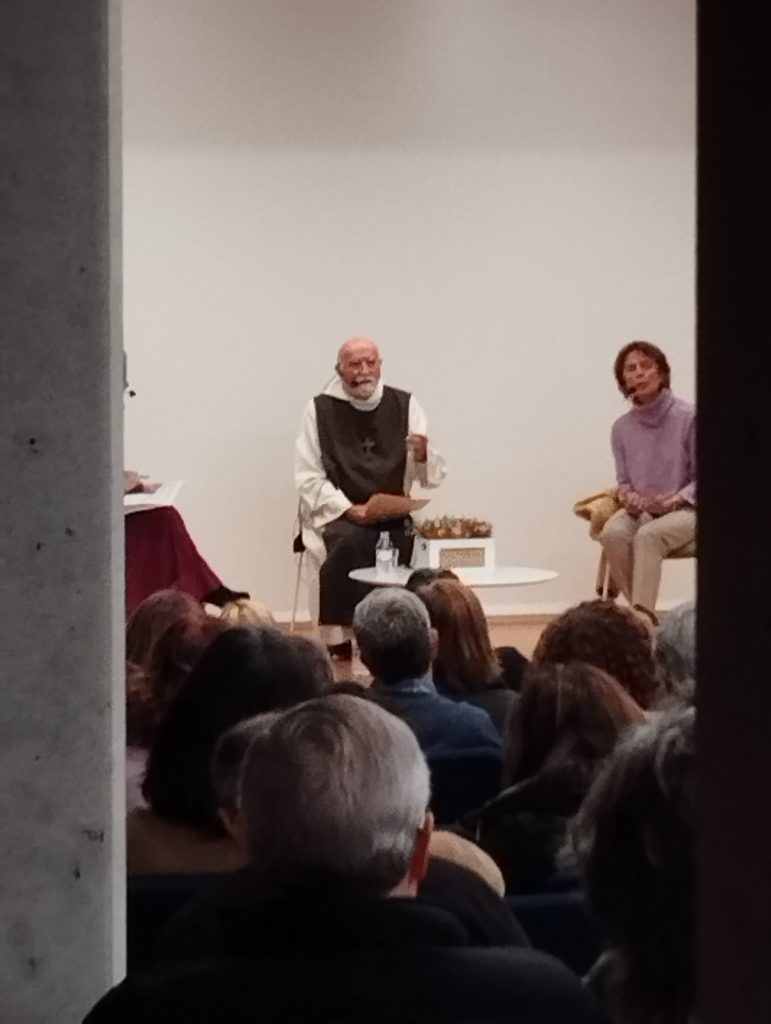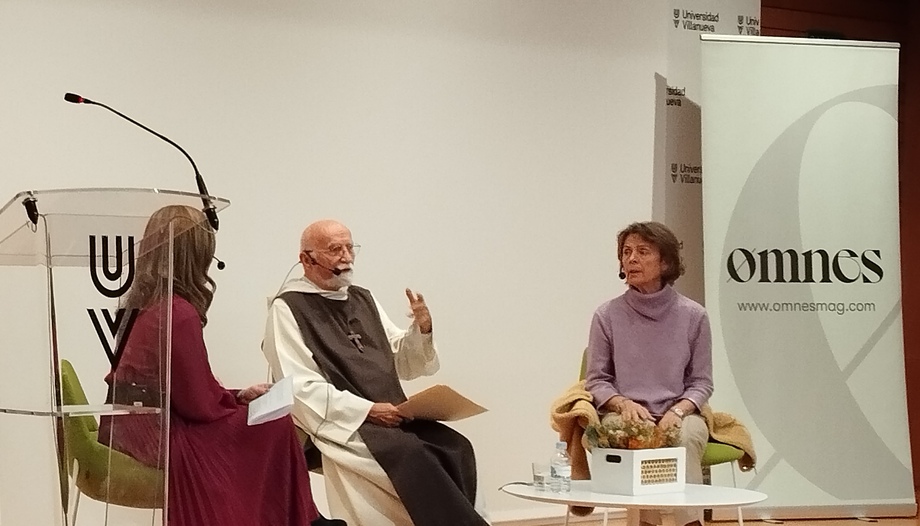On November 24, Omnes held a forum at the Villanueva university with Jacques Philippe. The theme of the session was "Do we need God?".

During his lecture, the well-known spiritual author developed four key points about the consequences of having separated God from our lives. In order to give a hopeful tinge to the session, Philippe began by assuring that "it seems that man abandons God, but God does not abandon man". Therefore, even if the consequences of the "death of the Father" are traumatic, there is the possibility of returning to Him.
The first essential idea that Jacques Philippe wanted to convey was that "to move away from God is also to move away from the source of truth". By losing the stability and solidity provided by God, "we fall into subjectivism, each one creates his own truth".
From this arises a danger of which the author warned, which is the temptation to create tailor-made religions. And not only that. In the long run, this leads to "loneliness, an individualism that deeply marks today's world".
Freedom and mercy
Secondly, Philippe denounced the lie of atheism, which claims that "God is the enemy of freedom". To remove the Father from the equation, the speaker explained, is not only to allow oneself to be carried away by a lie, but by removing God from our lives, we also remove mercy.
Drawing on the parable of the prodigal son in the Gospel, Jacques said: "Once the death of God has been proclaimed, what happens? The house is empty. There is no one to welcome you, to tell you that you have the right to be happy."
Taking the Father out of our life implies that "there is no more forgiveness for our sins, because man cannot forgive himself. He can find excuses, he can rely on psychological ones, but he cannot forgive his sins". What happens then? The speaker expressed it clearly: "man is alone with the weight of his mistakes".
The problem of freedom
The effects of this on our society today are terrible, Philippe said. Today, "there is no room for failure, no room for fragility". Men, unable to be weak, have become obsessed with success. We have put "an excessive burden on human shoulders".
Faced with a life in which error is not tolerated, the speaker explained, "the exercise of human freedom becomes difficult. Two different excesses open up before us. "On the one hand, the most absolute irresponsibility; on the other hand, the excess of responsibility, the burden of our decisions alone."
Jacques pointed out that having rejected God, "we have a lot of options to choose from, but we have no one to accompany us". This immediately becomes a "source of anguish. We men are aware that "we have freedom, but we have no one to help us discern". And, again, Philippe warned of the danger of this: "freedom can become problematic".
Healing wounds
The third key that the speaker spoke about relates to hope. "To deprive ourselves of God is to deprive ourselves of hope for the future. When one lives without the revelation of God, which is the meaning of our existence, life becomes heavy, narrow."
When we have the Father, the author explained, there are no definitive tragedies, because we know that the Lord, when we come to meet him, "will heal us completely". Not only that. Philippe encouraged all those present to have hope because "in an instant God can save what was lost".
This idea also has a very practical consequence in everyday life. "What prevents us from forgiving?" the speaker asked the lecture hall. "Sometimes what prevents us from forgiving is that we have the feeling that the wrong received by another is irremediable. That is where faith comes to help us, because if God exists every wound can heal."
Self-hatred
Finally, Jacques Philippe warned everyone of a clear consequence today that comes from driving God out of our lives. "Contemporary man does not succeed in reconciling with himself." Without hope, without mercy and without the opportunity for forgiveness, man does not even manage to love himself.
"We thought that by eliminating God we were eliminating guilt. It has been exactly the opposite. There is more and more guilt. Human beings consider their poverty as a tragedy. Philippe explained that "man can only accept himself with the gaze of God". He even went further in his affirmation: "When man distances himself from God, he ends up hating himself, because he no longer has any reason to love himself".
Jacques Philippe ended his talk by encouraging everyone to regain hope and to have the firm belief that "the freedom that God gives by accepting his presence in our lives is immense".








